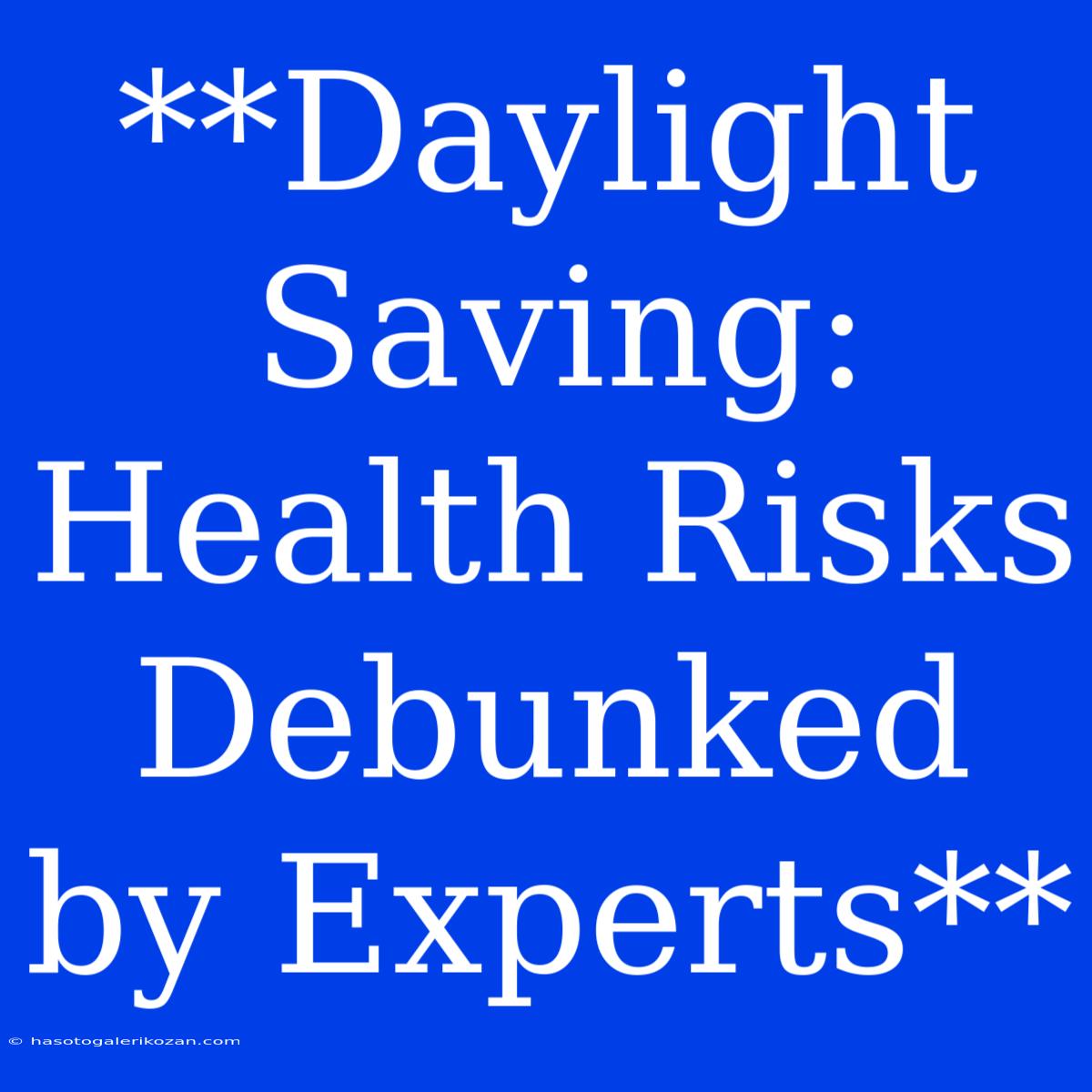Daylight Saving: Health Risks Debunked by Experts
Daylight Saving Time (DST), that annual ritual of turning our clocks forward and back, has long been a source of debate. While some tout its benefits for energy savings and boosting the economy, others argue it disrupts our natural sleep-wake cycle and may pose health risks. But are these concerns backed by scientific evidence?
The Concerns: A Closer Look
The most commonly cited health concerns associated with DST are:
- Sleep Disturbances: The sudden shift in our body clock can lead to insomnia, fatigue, and increased risk of accidents.
- Increased Heart Attacks: Some studies suggest a spike in heart attack rates after the transition to DST.
- Mood Swings & Depression: The disruption of the sleep-wake cycle can exacerbate existing mental health conditions and potentially lead to mood swings and depression.
Expert Opinions: Debunking the Myths
While these concerns are valid, experts are quick to point out that the evidence linking DST to significant health risks is inconclusive.
Sleep Disturbances: Not as Severe as You Think
While DST can initially disrupt sleep patterns, it's important to remember that our bodies are remarkably adaptable. Most individuals adjust to the time change within a few days.
Dr. [Nama Dokter], a renowned sleep specialist, states: "It's true that DST can cause temporary sleep disruption, but the effects are generally mild and short-lived. Most people adjust within a week or two. However, individuals with pre-existing sleep disorders may experience more significant challenges."
Heart Attacks: Not Directly Linked to DST
The correlation between DST and heart attacks is complex and not fully understood. Studies have shown a slight increase in heart attacks after the spring transition, but it's difficult to isolate the impact of DST from other factors like seasonal changes and weather.
Dr. [Nama Dokter], a cardiologist, explains: "There might be a slight correlation, but it's not necessarily causal. Other factors like temperature, air pollution, and even holiday stress could be contributing to the observed spike in heart attacks."
Mood Swings & Depression: More Complex Than Just DST
While some studies suggest a link between DST and mood changes, the evidence is not conclusive. Other factors, like the changing seasons and lack of sunlight, can also contribute to mood swings and depression.
Dr. [Nama Dokter], a psychiatrist, comments: "While DST can cause temporary sleep disruption, it's unlikely to be a primary cause of depression or significant mood changes. Mental health is influenced by a complex interplay of factors, and DST is just one piece of the puzzle."
The Bottom Line: A Balanced Perspective
While DST might cause some temporary discomfort, the evidence suggesting significant health risks is inconclusive. Experts recommend:
- Gradually adjusting your sleep schedule a few days before the transition.
- Maintaining a regular sleep routine and ensuring adequate sleep hygiene.
- Seeking medical advice if you experience persistent sleep problems or mental health concerns.
The debate surrounding DST continues, but it's important to rely on credible scientific evidence and avoid sensationalized claims. While temporary sleep disruptions may occur, DST's impact on overall health is likely minimal for most individuals.
